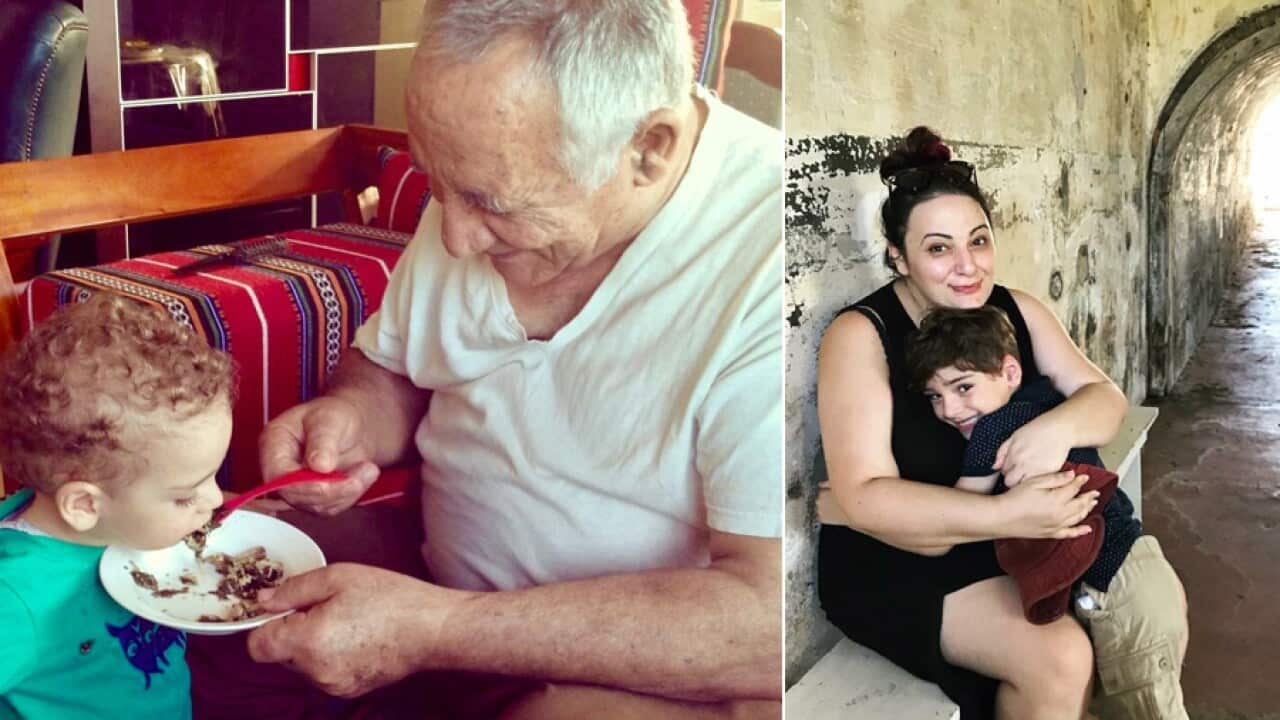My dad doesn’t drink water because he’s too lazy to go to the bathroom. He’s 72 years old and is being treated for colorectal cancer while also struggling with anaemia, muscle aches and stiffness that run from his head to his toes, and chronic headaches, dizziness, and tiredness.
My sisters and I always tell him that drinking more water might help, and every time we do he just dismisses the thought and says a cup of tea during meals, as he’s always done, is plenty. But then, minutes later, he’ll go on to complain about how his problems, aches and pains don’t seem to go away no matter what he tries.
Mum is 65 and has spent most of her time since Dad’s diagnosis in front of her laptop researching cancer and the human body, and writing hand-written notes that look like they came from a printer. Her research often keeps her up deep into the night so that she has only a few hours sleep before rising in the morning into a nap-filled and sometimes irritable day.
When my frustration mounts, I remember that my parents didn’t go to the schools I did.

The writer as a child with his father. Source: Supplied
I don’t know enough about human biology to explain how and why drinking more water or sleeping regularly could help them through this difficult time, but for a lack of other ideas - and a want that feels more like a need to help them - that’s all the advice I can give. To me they’re common-sense ideas, things that have been drilled into me since primary school, things you need for any kind of healthy or balanced life. But when my frustration mounts, I remember that my parents didn’t go to the schools I did.
Dad grew in Sarawak, a coastal strip of Malaysia on the northwest corner of Borneo, just after World War II. He recalls his childhood as one long, bucolic adventure of bike rides through hills after school and jumping naked into waterfalls. But I also know that his post-war childhood was so chaotic he isn’t certain what year he was born because he was only registered years later.
For a long time, I saw myself as a parent of my parents.
Mum was the oldest child of 12 in a poor Singaporean family. Her days after school were spent fighting other kids who bullied her siblings and helping her grandmother cook and clean, until she dropped out of high-school entirely to keep looking out for them. Despite more than 20 siblings between them, I only remember meeting three aunts in my life.
As I learned more about those childhoods, it makes sense how my parents responded to Dad’s illness, and how I responded to them. Dad acts like nothing has happened because it’s a remnant of his carefree upbringing. His behaviour and his habits haven’t changed, and if his thoughts about the future have shifted at all, they’re difficult to notice while he sits in front of a TV watching golf and the BBC to pass the days. Mum tries to take control of the situation like she did with the bullies of her little brothers and sisters, by learning so much about cancer that any uncertainty and ambiguity coming from our doctors will end at her ears.
For a long time, I saw myself as a parent of my parents. I would come in at difficult times to correct bad habits and help them through the challenges of Dad’s illness. But lately, I’ve realised that this is just a blend of my parents’ habits, and part of me processing the same experience. I avoid learning anything more than the bare minimum about Dad’s cancer and what his treatment is doing. I don’t want to know how it can fail or how I might be vulnerable to the same condition later in life, and I don’t want to bear the anxiety that I know will stem from those thoughts. But like my mum, I am trying to control something, Dad’s behaviour, by policing his water intake and his nutrition in general, by trying to get him to exercise, and by customising what he can see on his phone so I feel like I can protect him from people who want to misinform him.
I avoid learning anything more than the bare minimum about Dad’s cancer and what his treatment is doing. I don’t want to know how it can fail or how I might be vulnerable to the same condition later in life, and I don’t want to bear the anxiety that I know will stem from those thoughts. But like my mum, I am trying to control something, Dad’s behaviour, by policing his water intake and his nutrition in general, by trying to get him to exercise, and by customising what he can see on his phone so I feel like I can protect him from people who want to misinform him.

Source: Supplied
Willful ignorance and hyper-control are my natural responses to most of the challenges that come my way, and trying to parent my parents has opened my eyes to how prolific they’ve been through my life. The hardest part of caring for my parents so far has been accepting them for who they are and, by extension, accepting myself for what I have inherited.
But learning the story behind those habits has drawn them less as flaws and more as a part of what we are, as something that’s helped my parents forge lives and careers to provide for their families and carry them across the world. In that way, it’s made them easier to understand, easier to be kind to when they seem to be harming us, and eventually - except for Dad’s deliberate dehydration - easier to accept.
Eugene Yang is a freelance writer based in Melbourne. You can follow him on Instagram at .



